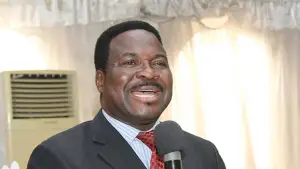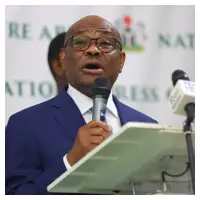Elder statesman Alhaji Tanko Yakasai and economist Professor Kabiru Isa Dandago have expressed divergent opinions on President Bola Ahmed Tinubu's performance as his administration marked its second anniversary on Thursday, May 29, 2025.
In an exclusive interview with Daily Post, the soon-to-be centenarian Yakasai described the Tinubu administration's performance as "neither bright nor gloomy," acknowledging some progress while suggesting it remains too early for a comprehensive evaluation.
"It would be grossly unfair to say the president has not made any progress if we now consider that we are beginning to see less public complaints," Yakasai stated. "I am not going to say what he has accomplished in altering existent policies is perfect. But I feel he has laid down the foundation to be able to change the economy."
2027 Election Prospects
Regarding President Tinubu's chances for re-election in 2027, Yakasai expressed confidence in the president's position, noting his strong support among governors and party leaders across the country.
"For the moment, I don't see anyone who can stake a serious claim to the president's position. He commands the allegiance of many governors, whose commissioners, House of Assembly members, and party leaders follow his lead," he observed.
However, the veteran politician cautioned that "politics is a strange dance," referencing former President Muhammadu Buhari's electoral victory without the backing of most governors as evidence of how quickly political fortunes can change.
Economic Assessment
In contrast, Professor Kabiru Isa Dandago offered a more critical assessment of the administration's economic performance. The economist emphasized that true economic growth must be measured by improvements in employment, poverty reduction, inflation control, and self-reliance.
"In assessing economic growth, we look at the extent of employment, poverty, inflation and self-reliance. If all four are on the up, then the economy is not growing," Dandago explained.
While acknowledging the administration's infrastructure achievements—including the Lagos–Port Harcourt Highway, the Imo–Maiduguri Highway, and the establishment of new regional development commissions—Dandago maintained that there has been no measurable economic growth.
"Eventually, if these are well implemented, they will reduce unemployment and encourage entrepreneurship but right now, hopes of future economic growth are still, more than actual visible economic benefit," he concluded.
These contrasting perspectives reflect the mixed public sentiment surrounding President Tinubu's Renewed Hope Agenda as Nigeria continues to grapple with inflation, unemployment, and ongoing economic reforms at the midpoint of his first term.













